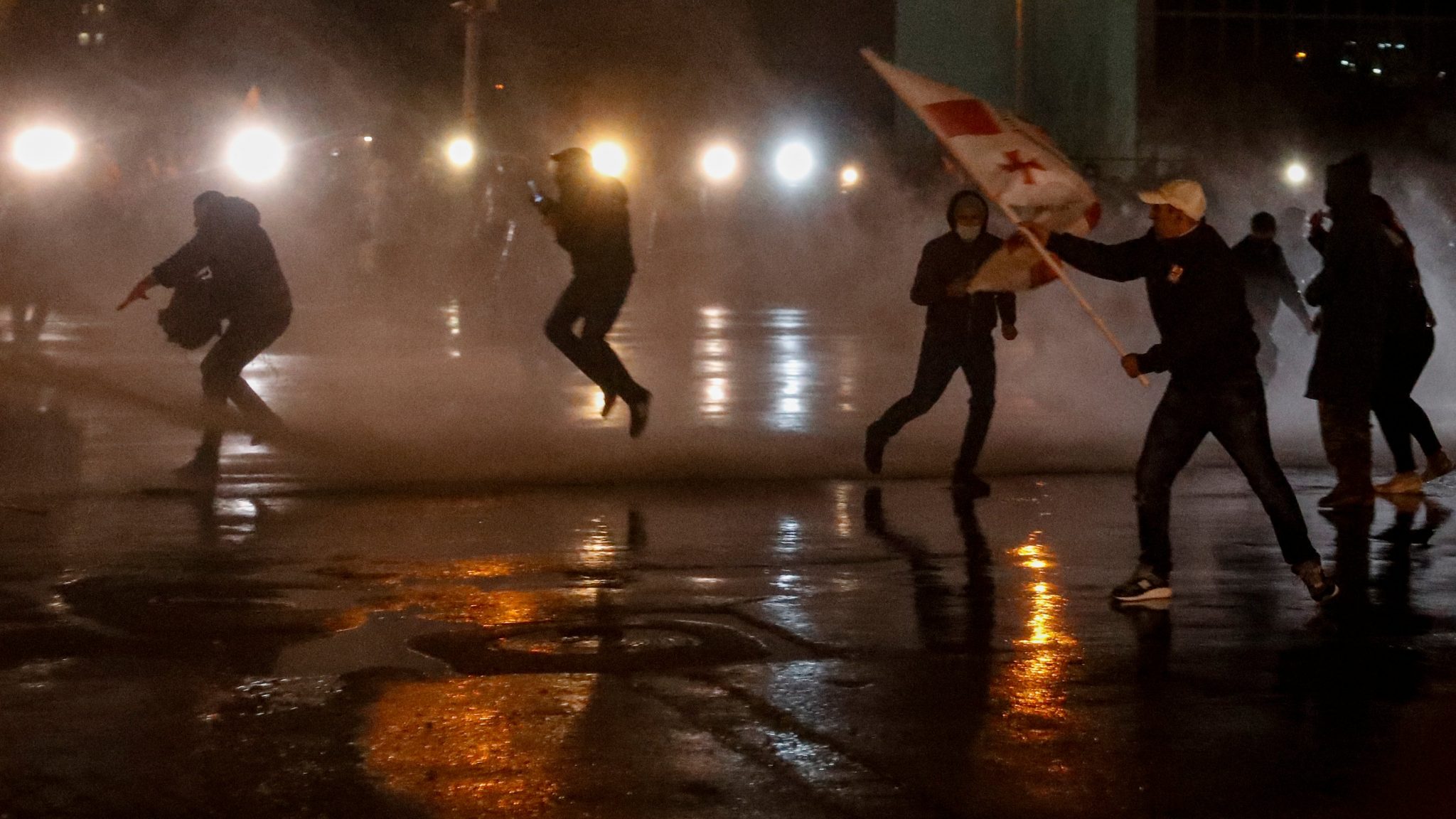

The District Election Commissions (DECs) have been accused of failing to adequately administer the vote count during the 2020 Georgian Parliamentary Elections. The Parallel Vote Counting (PVT) conducted by domestic citizen election observers, such as International Society for Fair Elections and Democracy (ISFED), revealed discrepancies in the vote count in eight percent of polling stations.[1] The Georgian Public Defender’s office maintained that Election Commissions failed to adequately respond to the substantive violations detected in the summary protocols. This was further aggravated by a number of irregularities on the election day including vote buying, heavy use of state resources, and a hostile attitude towards the domestic observers. The ensuing public protest included calls for the resignation of the Chairman of the Central Election Commission (CEC) and snap elections. Amidst these developments the Georgian authorities have unlawfully dispersed crowds using cold water cannons amounting to an excessive use of force.
Election Administration
Amidst discrepancies and overwritten data in the summary protocols, ISFED applied to 44 District Election Commissions (DECs) requesting revision of voting results at 162 precincts.[2] The majority of complaints were denied admissibility or were dismissed on merits. In a bid to exclude observers from attending the proceedings, hearings were held at different times than previously communicated. The tight time frames and limited resources made it impossible for civil society to challenge irregularities in all polling stations. The DECs largely refused to act on their own initiative to address irregularities but did a recount in two precincts after their initial refusal to do so. They also upheld complaints on recounting ballots in ten polling stations. In its recent statement, the CEC submitted that in total DECs recounted votes in 39 polling stations, six based on its initiative, 14 based on complaints and 19 based on the Court decision.[3] It also asserted that “specific political actors” are disrupting the process, as well as “deliberately discrediting” the independence of the Election Administration.[4]
Marred Appeal Process
The appeals process by the election administration was rendered illusionary. The CEC was late with uploading the supporting documents in an online registry whilst some documents have been replaced without any explanation, thus undermining the appeal process. The appeal process itself was largely formal as complaints dismissed on merit were without due consideration. Amidst an ill established practice, the DECs relied on vague explanations provided by the members of the precinct election commissions (PECs) during deliberations. They have largely circumvented any attempts to verify sealed documentation and make adjustments accordingly. Whilst the appeal proceedings before the national courts have not yet been finalized, preliminary findings show that Courts do not uphold claims.
Peaceful Protest dispersed unlawfully
On the night of 8- 9 November, hundreds of opposition supporters came out protesting the flawed election results. The rally was led by the opposition leaders whilst some protesters moved towards the CEC. The deployed riot police used water cannons without warning against small groups soon after they arrived at the CEC building, which is fenced off by an iron gate. The Ministry of Interior alleged that the use of water cannons was justified to dissolve the ‘storm’ and was used in line with the law in response to the ‘urgent necessity’ requiring ‘no warning’.[5] The water cannons were used for a second time, albeit after a short warning, to swiftly disperse a skirmish between a small group of protesters and the police. The use of water cannons against peaceful protesters was condemned by the Public Defender who alleged that there was no reason to disperse the protest and that using force on protesters without prior warning was against the law.[6]
Use of Excessive Force and Arrests
Based on national law, water cannons can only be used against ‘massive disorders’ to counter the ‘mass attack on state objects or in self-defense’[7] after a warning.[8] The UN Principles on the Use of Firearms by law enforcement officials further scrutinizes the use of water cannons, not allowing the use of targeted jet water at an individual or group of individuals at short range with a view to avoid injury or blindness. It should not be used in cold weather to avoid cold water shock.[9] The Police arrested 19 protesters on charges related to disobedience to lawful order under the Administrative Offences Code of Georgia[10].
Arrests were also made on the second day of protests, as three protesters tried to bring in firewood to make a fire to warm up protesters. The Tbilisi City Court found all three detainees guilty, imposing fines on two individuals and an administrative detention on the third.[11] The judge chose to oversee the fact that an Independent Inspector opened an investigation into the excessive use of force by the policeman who apprehended the third protester. The Georgian Law bans flammable objects during assemblies. The Public Defender’s office, however, maintained that this ban is only legitimate if there is a reasonable and founded doubt of a real and imminent threat caused by the firewood and that it would be used to hurt other individuals.[12] Later, in response to the newly adopted ban on movement in seven major cities under the public health law provisions, the Public Defender maintained that the ban does not extend to the right to assembly inherently guaranteed by the Constitution. With a view to de-escalate the situation, the civil society called on both the ruling party and the opposition parties to start talks through mediation by the international community to dissolve the crisis.
To the EU:
To the Georgian authorities:
Author: Mariam Uberi
Subscribe to our
newsletter
Sign up for our monthly newsletter
and receive the latest EPDE news
Subscribe to our
newsletter
Sign up for our monthly newsletter and receive the latest EPDE news